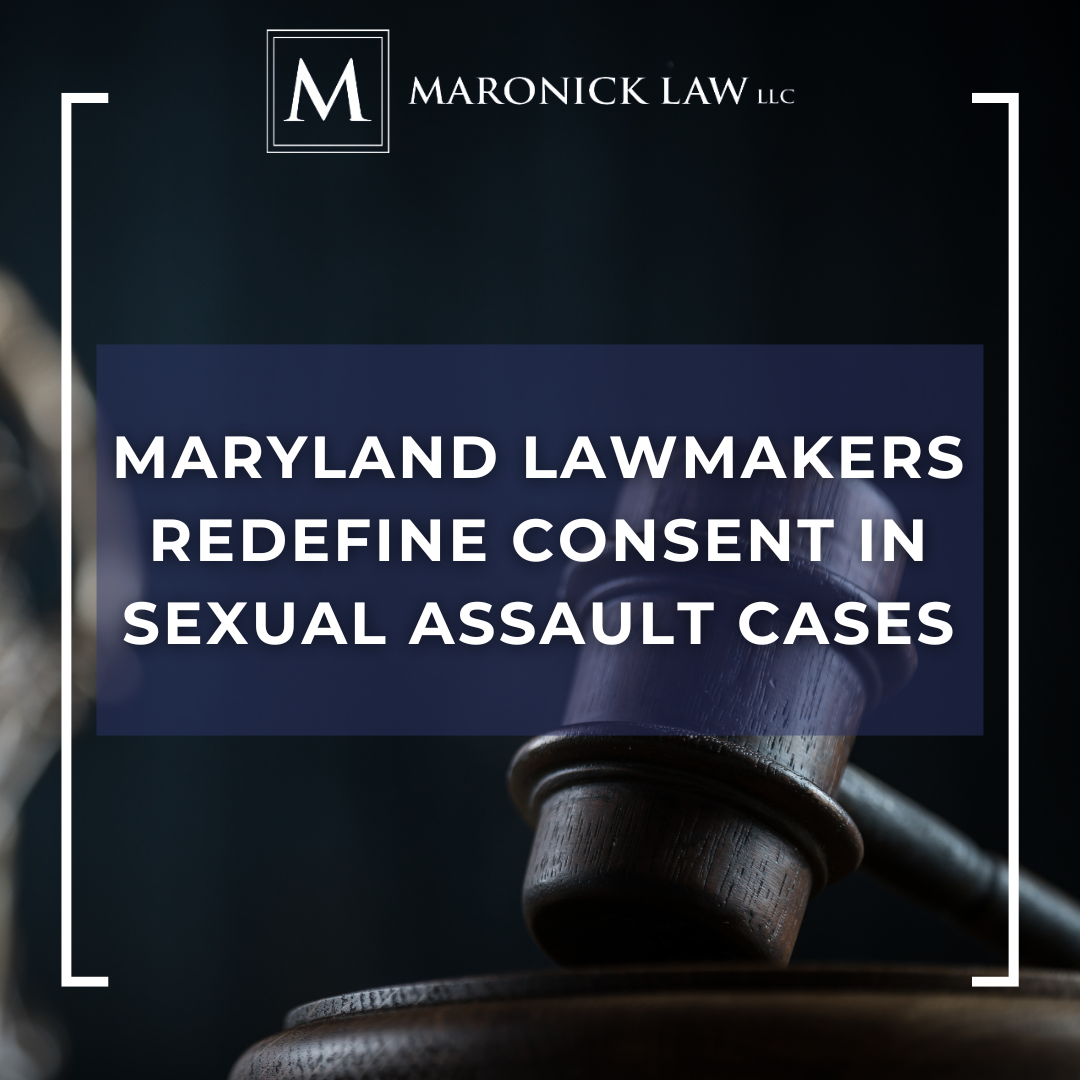
In a significant change in sexual assault prosecutions, a new law in Maryland has eliminated the need to prove “force or threat of force” and redefined consent. Maryland’s legal system will now focus on whether the victim clearly conveyed consent.
The state will no longer require that prosecutors demonstrate that the accused used "force or threat of force" in cases of second-degree rape. Critics said the previous standard set a high bar that put survivors in the difficult position of having to prove they resisted. It required proof that the victim tried to stop the rape, they said.
Instead, a statutory definition of consent is now in place that clarifies sexual acts must involve a clear and voluntary agreement from all parties involved. This change in the law places the victim’s lack of consent at the center of the case.
While not explicitly termed "affirmative consent," the law underscores that any sexual act requires an enthusiastic "yes" to be considered consensual. Consent, according to this standard, is not assumed based on a previous relationship, attire, or even the lack of resistance due to fear or shock. The law acknowledges that survivors may experience a “freeze” response in moments of trauma, making it difficult or impossible to physically resist.
The new standard means that rape survivors won’t be questioned about whether they physically resisted the assault. An Ocean City sexual assault attorney can provide more information.
The modernization of rape and sexual assault consent laws was championed by advocacy groups and sex crimes survivors as the bills traversed the legislative process. The Maryland Legislative Coalition, representing over 30,000 members, advocated for the changes.
The organization explained that the previous standard “contradicts what we teach students, that consent means the unambiguous and voluntary agreement between adults. Yet, our criminal law requires more – effectively creating a duty to affirmatively refuse sex.”
The new law also mandates the collection of data related to rape and sexual offense charges and convictions, including demographic information such as sex, age, and race. Such data collection could enhance the understanding of sexual crimes and highlight underreporting trends, particularly among marginalized communities, as research shows these cases are often less reported.
The law went into effect on Oct. 1.
